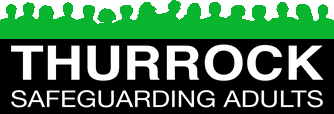Organisational Abuse – What is it?
Organisational or institutional abuse, neglect and poor care happens within an institution such as a residential home or a hospital, it can also happen in a person’s own home. This form of abuse is often as a result of an imbalance of power poor policies, processes and practices within an organisation.
This may range from one-off incidents to on-going mistreatment.
The types of organisational or institutional abuse include:
- Discouraging visits or the involvement of relatives or friends
- Run-down or overcrowded establishment
- Authoritarian management or rigid regimes
- Lack of leadership and supervision
- Insufficient staff or high turnover resulting in poor quality care
- Abusive and disrespectful attitudes towards people using the service
- Inappropriate use of restraints
- Lack of respect for dignity and privacy
- Failure to manage residents with abusive behaviour
- Not providing adequate food and drink, or assistance with eating
- Not offering choice or promoting independence
- Misuse of medication
- Failure to provide care with dentures, spectacles or hearing aids
- Not taking account of individuals’ cultural, religious needs
- Failure to respond to abuse appropriately
- Interference with personal correspondence or communication
- Failure to respond to complaints
- Harsh and disproportionate methods to manage behaviour.
Who it happens to and who are the perpetrators
Anyone who receives care or support from a care setting or receives care in their own home. The perpetrator could be:
- Family and friends
- Professional staff
- Paid care workers
- Volunteers
- Other service users.
This type of abuse can happen in a care setting such as a residential home, or in the adult’s own home, for example by a service that provides home care.
Possible signs of organisational or institutional abuse
- Lack of flexibility and choice for people using the service
- Residents appear to be hungry or dehydrated
- Poor standards of care
- Lack of personal clothing, possessions
- Communal use of personal items
- Lack of adequate procedures
- Poor record-keeping and missing documents
- Absence of visitors
- Few social, recreational and educational activities
- Public discussion of personal matters
- Unnecessary exposure during bathing or using the toilet
- Absence of an individual care plan
- Lack of management overview and support
- Inappropriate restraint
- Medication is not given appropriately
- Signs of physical abuse such as bruises, cuts or falls
- Pressure ulcers
- Tension or anxiety with carers and staff.
If you are worried that you or an adult you know is being abused or neglected report it now, call 01375 511000.
If the person is immediate danger, dial 999 and ask for the police.
For further information:
Thurrock Council Contract and Commissioning Team
